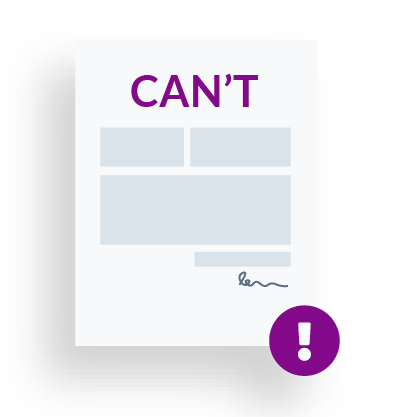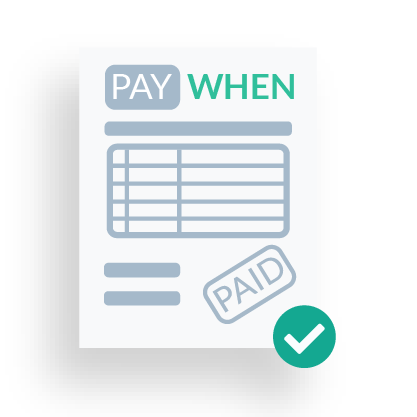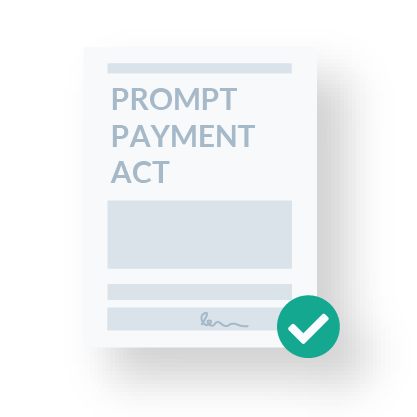Georgia Construction Contracts
- Private Jobs
- Public Jobs
- Top Links

Lien Rights Can't be Waived by Contract
Georgia mechanics lien law specifically prohibits the ability to waive lien rights prior to furnishing.
Pay-if-Paid Enforceable
Pay if paid clauses are enforceable as a condition precedent to payment in Georgia, but the contract must contain an express provision clearly showing that the intent of the parties was to shift the risk of nonpayment.

Pay-when-Paid is Enforceable
Georgia case law specifically allows pay when paid clauses to be enforced as a complete ban on payment if explicit. Contract language stating that payment will be made only when payment is received from above is effective to effectively bar payment forever; provided the clause is explicit.

Payment Timing May Be Modified By Contract
The timing requirements and interest penalties on private projects under the prompt pay laws may be modified by contract.

Retainage Amount Unregulated
In Georgia, the amount of retainage on private projects is unregulated, and set by the contract between the owner and the GC.
Pay-if-Paid (Likely) Enforceable
Pay-if-paid clauses on public projects are likely enforceable as a condition precedent to payment/

Pay-When-Paid (Likely) Enforceable
It is likely that pay when paid and pay if paid clauses would be enforceable on public projects in Georgia to the same extent as private projects, but at least one court has examined this issue from a more theoretical perspective.

Payment Timing May Be Modified By Contract
The timing requirements and interest penalties on private projects under the prompt pay laws may be modified by contract.

Retainage May Not Be Modified By Contract
Retainage on public projects in Georgia is capped at no more than 10%. Upon 50% completion, no more retainage will be withheld if satisfactory progress is being made.
A construction contract outlines each party’s obligations, rights, and remedies on a project. But although the language in specific contract clauses is typically negotiable, Georgia has certain rules that govern what the agreement must include — and what is prohibited.
Keep in mind that, while Georgia’s rules for construction contract terms are written into state law, the courts determine how strictly those laws should be interpreted — and those interpretations can change.
On this page, you’ll find resources, legal information, and answers to frequently asked questions about Georgia’s construction contract and payment terms requirements.
Georgia construction contract provisions
While Georgia generally allows construction parties to set the terms of their agreement, there are some laws that regulate specific types of contract provisions. Any contract clause that contradicts the law is invalid and unenforceable.
“No lien” clauses
Georgia’s mechanics lien law specifically prohibits the use of “no-lien clauses.” Any term in a construction contract that attempts to waive or impair a party’s claims or liens in advance of performance, shall be void and unenforceable.
Contingent payment clauses
There are two types of contingent payment clauses: pay-if-paid and pay-when-paid, and Georgia essentially treats these as the same.
Georgia specifically allows parties on private projects to modify their rights to payment and shift the risk of nonpayment through pay-when-paid and pay-if-paid provisions. In Georgia, if the wording is specific and clear, a pay-when-paid clause stating that payment will be made only when payment is received from above can effectively bar payment forever. This was discussed in the case United States ex rel. McKenney’s, Inc. v. Gov’t Tech. Servs., LLC, 531 F. Supp. 2d 1375, 1378 (N.D. Ga. 2008), among others.
The effectiveness of such risk-shifting provisions is less clear and potentially subject to some more legal nit-picking on public projects in Georgia, but best practice would be to treat them as effective. It is likely that pay-when-paid and pay-if-paid clauses would be enforceable on public projects in Georgia to the same extent as private projects.
Payment timing clauses
Georgia’s prompt payment statutes apply to both private and public projects. Payments by the owner or public entity (where applicable) are due to the prime contractor within 15 days of receipt of an invoice or payment request. Once payment is received, subcontractors and suppliers must be paid within 10 days. If payment is late, the amount will accrue interest at a rate of 1% per month. However, the parties may modify both the timing of payments and the amount of interest that will accrue for late payment under the terms of the contract.
• See: Georgia’s Prompt Pay Act | What Contractors Need to Know
Retainage limits
The amount of retainage that can be withheld on private projects is unregulated in Georgia. Therefore the terms of the contract will govern how much retainage may be withheld from each progress payment. On public projects, the amount of retainage is strictly capped at 10% of each progress payment until the contractor reached 50% satisfactory completion. If so, then no more retainage should be withheld for the remaining progress and final payments.
• See: Guide to Retainage on Georgia Public & Private Projects
Georgia construction contract requirements
Georgia doesn’t have any specific, statutory requirements for construction contracts. Generally, there are always certain provisions that should be included in a contract, such as a price, schedule, the scope of work, etc.
• See: A Guide to Common Construction Contract Parts
However, there are some specific requirements for certain residential projects. On projects concerning 1-2 family residential projects, the prime contractor must provide a written warranty listing the details of work covered, exemptions, claim procedures, and more as required by the GA Board of Residential & General Contractors. Additionally, construction contracts involving any buildings intended to be used for residential purposes must also contain specific notice language informing the consumer of the construction defect notice and opportunity to repair process.

